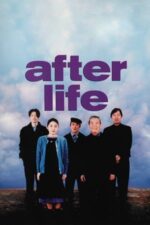Beyond the Pearly Gates: Exploring "Heaven" in Cinema
The concept of heaven – that ultimate reward, that promised land – has captivated humanity for millennia. It's fertile ground for artists, naturally, and cinema has wrestled with its meaning, its form, and its implications in some truly fascinating ways. We don’t just want to depict a fluffy cloudscape; we use the idea of “heaven” to explore profound questions about life, loss, redemption, and what it means to be human.
Think about "A Matter of Life and Death" (1946). It's not so much about literal heaven as it is about bureaucracy even in the afterlife! The film uses a whimsical, almost surreal depiction of celestial beings meticulously reviewing a pilot’s “mistake” – his unexpected survival after jumping from a plane. It’s hilarious, yes, but also deeply poignant; it questions our notions of fate and free will, and how even divine order can be challenged by love. It's a clever way to examine the absurdity of rules when confronted with genuine human connection. I remember seeing this as a kid and being completely mesmerized – the sheer imagination on display!
Then you have something like "Even Mice Belong in Heaven," which takes a lighter, more fantastical approach. The idea of an animal heaven where natural enemies become friends is pure joy, but it also speaks to our desire for reconciliation and understanding. It’s a gentle reminder that preconceived notions can be shattered when we're willing to look beyond surface differences – something desperately needed in today’s world, wouldn’t you agree?
"After Life," on the other hand, offers a strikingly grounded take. It doesn't show us a grand celestial realm; instead, it presents a bureaucratic office where the recently deceased choose one memory to carry with them into eternity. It’s profoundly moving because it forces us to confront what we truly value – those fleeting moments that define our lives. The film isn’t about escaping death; it’s about appreciating life and the memories we create within it.
"Left in Darkness" takes a darker route, using the concept of an afterlife as a backdrop for vengeance and redemption. It's a stark contrast to the more whimsical depictions, highlighting how our understanding of "heaven" can be shaped by trauma and injustice. And “Made in Heaven” beautifully explores longing and connection across realms – a yearning that resonates deeply with anyone who’s ever felt separated from someone they love.
Ultimately, these films demonstrate that "heaven" isn't just about pearly gates and harps. It’s a powerful narrative tool—a lens through which we examine our own mortality, our relationships, and the enduring search for meaning in a world often shrouded in darkness.
What do you think? Which of these depictions resonated with you most, and why?







































